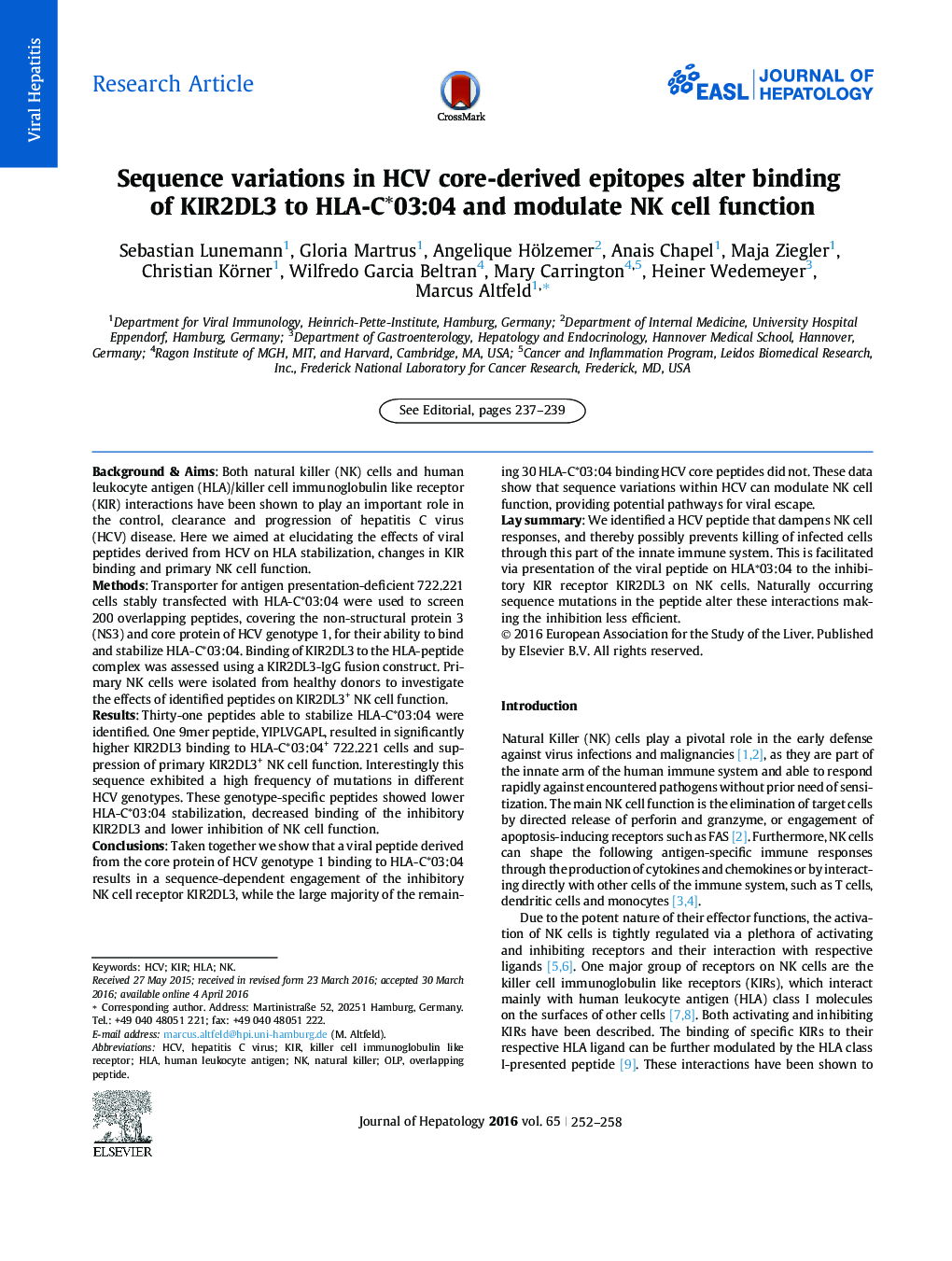| کد مقاله | کد نشریه | سال انتشار | مقاله انگلیسی | نسخه تمام متن |
|---|---|---|---|---|
| 3313562 | 1211103 | 2016 | 7 صفحه PDF | دانلود رایگان |
Background & AimsBoth natural killer (NK) cells and human leukocyte antigen (HLA)/killer cell immunoglobulin like receptor (KIR) interactions have been shown to play an important role in the control, clearance and progression of hepatitis C virus (HCV) disease. Here we aimed at elucidating the effects of viral peptides derived from HCV on HLA stabilization, changes in KIR binding and primary NK cell function.MethodsTransporter for antigen presentation-deficient 722.221 cells stably transfected with HLA-C∗03:04 were used to screen 200 overlapping peptides, covering the non-structural protein 3 (NS3) and core protein of HCV genotype 1, for their ability to bind and stabilize HLA-C∗03:04. Binding of KIR2DL3 to the HLA-peptide complex was assessed using a KIR2DL3-IgG fusion construct. Primary NK cells were isolated from healthy donors to investigate the effects of identified peptides on KIR2DL3+ NK cell function.ResultsThirty-one peptides able to stabilize HLA-C∗03:04 were identified. One 9mer peptide, YIPLVGAPL, resulted in significantly higher KIR2DL3 binding to HLA-C∗03:04+ 722.221 cells and suppression of primary KIR2DL3+ NK cell function. Interestingly this sequence exhibited a high frequency of mutations in different HCV genotypes. These genotype-specific peptides showed lower HLA-C∗03:04 stabilization, decreased binding of the inhibitory KIR2DL3 and lower inhibition of NK cell function.ConclusionsTaken together we show that a viral peptide derived from the core protein of HCV genotype 1 binding to HLA-C∗03:04 results in a sequence-dependent engagement of the inhibitory NK cell receptor KIR2DL3, while the large majority of the remaining 30 HLA-C∗03:04 binding HCV core peptides did not. These data show that sequence variations within HCV can modulate NK cell function, providing potential pathways for viral escape.Lay summaryWe identified a HCV peptide that dampens NK cell responses, and thereby possibly prevents killing of infected cells through this part of the innate immune system. This is facilitated via presentation of the viral peptide on HLA∗03:04 to the inhibitory KIR receptor KIR2DL3 on NK cells. Naturally occurring sequence mutations in the peptide alter these interactions making the inhibition less efficient.
Figure optionsDownload high-quality image (183 K)Download as PowerPoint slide
Journal: Journal of Hepatology - Volume 65, Issue 2, August 2016, Pages 252–258
